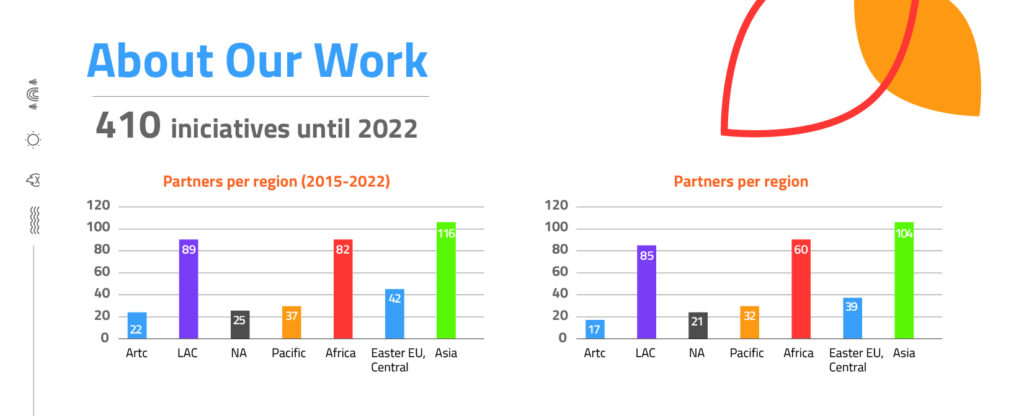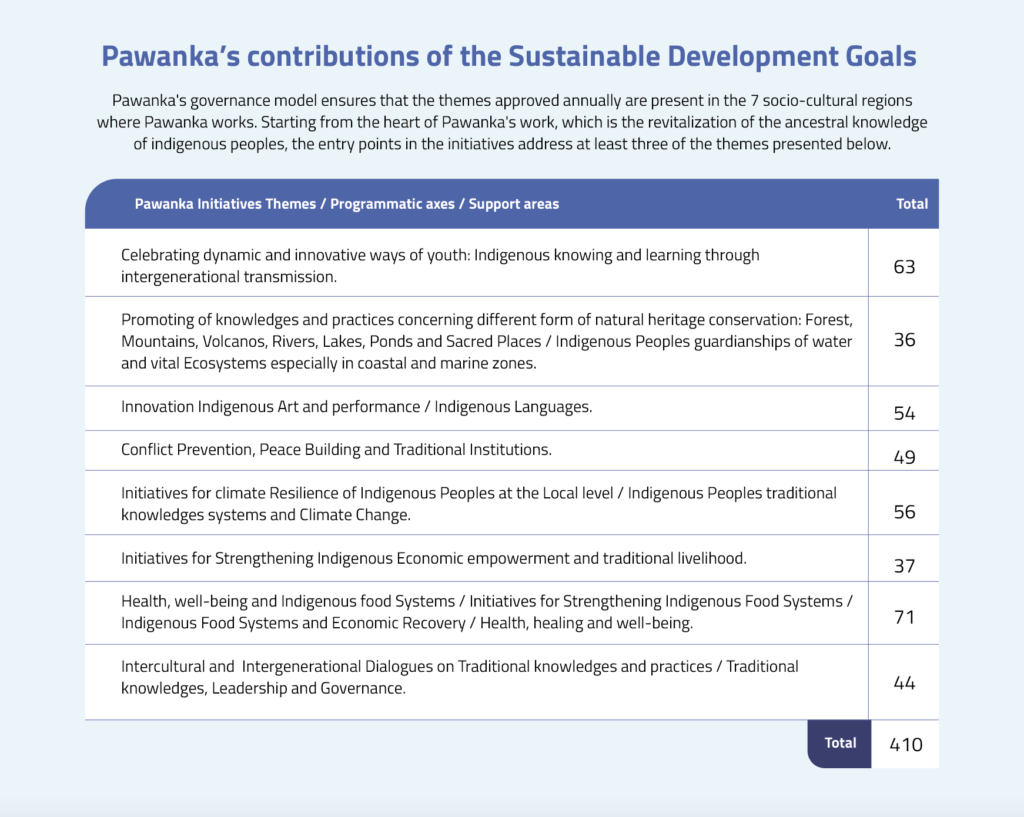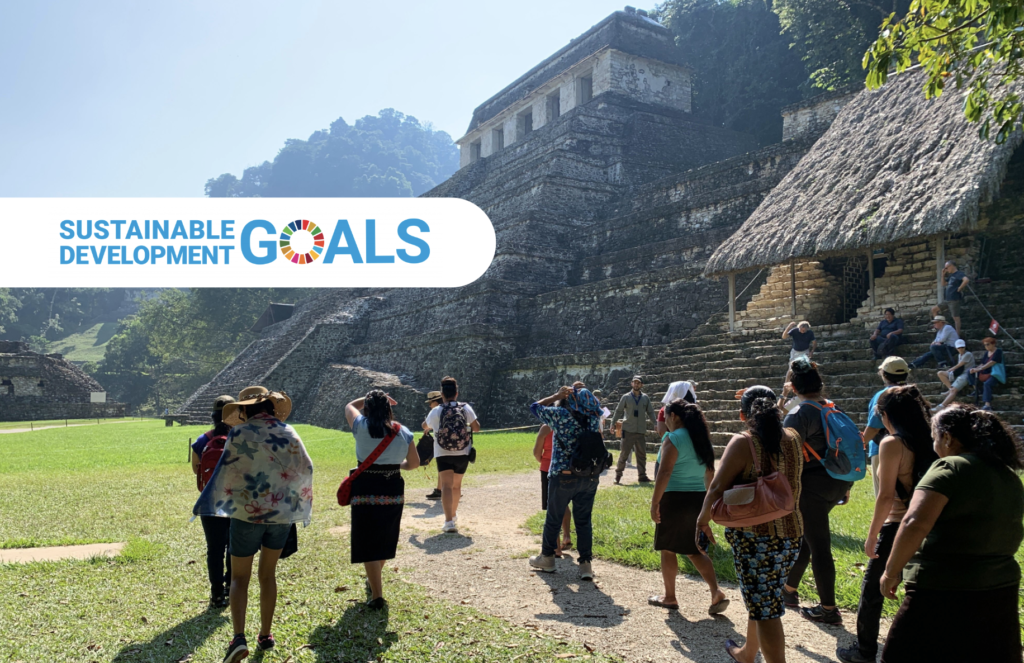
The 2030 Agenda for Sustainable Development seeks to implement the 17 Sustainable Development Goals within 15 years. The 2030 Agenda promotes sustainable development in the social, environmental and economic dimensions. It recognizes the eradication of poverty as the greatest global challenge. This agenda will be implemented by all countries and interested parties in a collaborative alliance, with the aim of protecting people and the planet, promoting prosperity, peace and strengthening international alliances to protect human rights for all people.
These objectives and goals are indivisible; they integrate the three dimensions of sustainable development whilst promoting action in critical areas for humanity and the planet. The Agenda calls on Indigenous Peoples to actively participate in its implementation with 6 direct references to them in the objectives and goals. Indigenous Peoples are mentioned as one of the communities that needs effective measures to remove obstacles and restrictions to meet their special needs. In the section on inclusive and equitable education, it is ensured that Indigenous Peoples, along with other vulnerable groups, have the right to quality permanent education and access to learning opportunities to acquire the knowledge and skills necessary to fully participate in society.
In addition, numeral 52 establishes that the 2030 Agenda belongs to the people, is by the people and for the people, and that Indigenous Peoples are an important part of this path towards compliance with the 2030 agenda. It also suggests that countries carry out inclusive periodic reviews with Indigenous Peoples’ participation. The Sustainable Development Goals (SDGs) highlight Indigenous Peoples in the promotion of sustainable agriculture and seek to double agricultural productivity and the income of food producers.
The 2030 Agenda recognizes the importance of indigenous communities in achieving the Sustainable Development Goals and promotes their inclusion in the actions and measures adopted to achieve a more just and sustainable world.
The Pawanka Fund supports initiatives promoted in 8 thematic axes. These axes are closely linked to the Sustainable Development Goals, including projects on Zero Hunger, Quality Education, Clean Water and Sanitation, Climate Action, Life Underwater, Life on Earth, Peace, Justice and Strong Institutions, Responsible production and consumption. Since the fund’s creation, Pawanka has completed more than 400 initiatives in 72 countries in the socio-cultural regions where Indigenous Peoples live.


Pawanka Fund wants to highlight the contributions made by the Indigenous Peoples of the world in fulfilling the 2030 Agenda in achieving a sustainable future for all. Despite the fact that they have historically suffered many injustices that require reparation, Indigenous Peoples contribute to the care of the health of the ecosystems of Mother Earth.
It is necessary that the rights of Indigenous Peoples be respected and supported to overcome the disadvantages they face. As a society, we must value and protect the cultural and linguistic diversity they represent. In the same way, it is necessary to recognize the efforts that have been made to meet the Sustainable Development Goals for the fulfillment of the 2030 Agenda.

